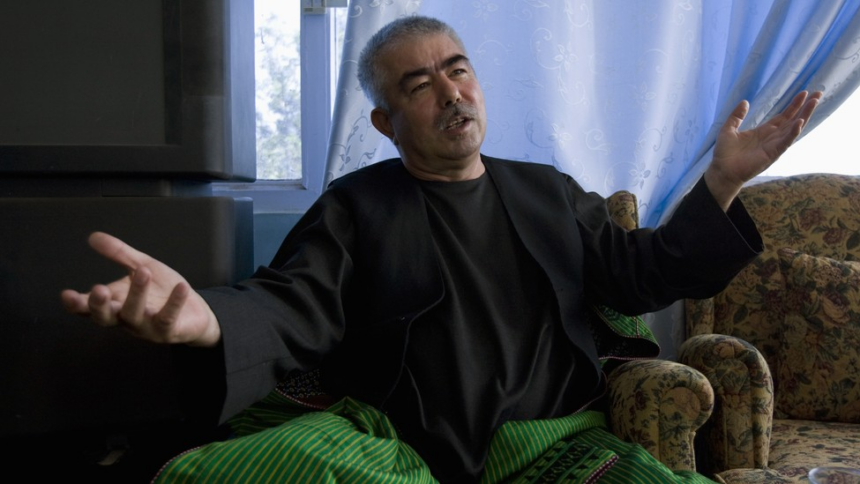RASC News Agency: Marshal Abdul Rashid Dostum, former Vice President of Afghanistan and influential leader of the National Islamic Movement, has accused the Taliban of orchestrating a calculated campaign of ethnic repression and demographic manipulation in northern Afghanistan particularly in regions with a significant Uzbek population. He described the group’s approach as a “fascist project” designed to systematically weaken the Turkic identity and displace its people from ancestral lands. Speaking at a closed-door meeting with political activists and civil society representatives in Ankara, Turkey, Dostum launched a blistering attack on the Taliban’s policies, denouncing their ethnic engineering strategies, including the resettlement of Pakistani nationals in historically Uzbek-majority provinces such as Jowzjan, Faryab, and Sar-e Pul. He warned that these actions are part of a broader plan to alter the region’s demographic fabric and eliminate the political and cultural influence of Turkic communities.
“These are not accidental population movements,” Dostum stated. “They are the core of a dangerous and deliberate strategy by the Taliban to erase the identity and diminish the presence of Afghanistan’s Turkic peoples.” In his remarks, Dostum also criticized the deafening silence of regional Turkic-speaking countries, singling out Uzbekistan for what he described as a policy of appeasement and normalization with the Taliban, despite the group’s openly hostile treatment of ethnic Uzbeks and other minorities. While praising Turkey for its vocal support, he lamented that most Central Asian republics have failed to uphold their moral and historical responsibility to protect ethnic kin under Taliban rule.
“The Taliban are not simply repressing individuals; they are attempting to eradicate cultures. Yet, tragically, much of the region stands by in silence,” he said. Dostum further claimed that the groundwork for these fascist policies was laid even before the Taliban’s return to power. He accused former President Ashraf Ghani Ahmadzai of nurturing ethno-nationalist tendencies and colluding with Taliban-linked networks. According to Dostum, Ghani once instructed the Haqqani Network to focus on controlling Uzbek regions, viewing Turkic federalist aspirations as a threat to the central government’s domination.
“Ghani told the Haqqanis that if they could capture Jowzjan, they could dominate the rest of Afghanistan. Why? Because the Turkic communities believe in federalism, autonomy, and pluralism values that both Ghani and the Taliban saw as obstacles to their centralist grip,” Dostum alleged. Since the Taliban’s takeover in August 2021, Marshal Dostum has lived in exile in Turkey, where he remains a prominent member of the Supreme Council of National Resistance, a coalition committed to resisting Taliban rule and restoring inclusive governance. A seasoned military commander with a long history of battlefield confrontations with the Taliban, Dostum remains a symbol of northern resistance and is reportedly despised by the Taliban leadership, who have labeled him a “mass killer” of their ranks.
However, some observers have expressed disappointment over what they view as Dostum’s lack of actionable strategy in recent years. Despite his powerful rhetoric and symbolic presence in the resistance movement, critics argue that he has not translated his influence into tangible military or diplomatic efforts to protect the Turkic populations now suffering under Taliban repression. Meanwhile, the Taliban continues to rule northern Afghanistan with an iron fist, imposing severe cultural restrictions, silencing dissent, and systematically sidelining ethnic and linguistic minorities. Their policies in Uzbek-majority provinces ranging from land confiscations to school closures and forced population transfers have drawn comparisons to authoritarian regimes with genocidal ambitions.
In the absence of sustained international pressure and regional solidarity, many fear that the Taliban’s fascist blueprint will succeed not only in crushing political opposition but in erasing the multiethnic tapestry that once defined Afghanistan’s northern frontier.






